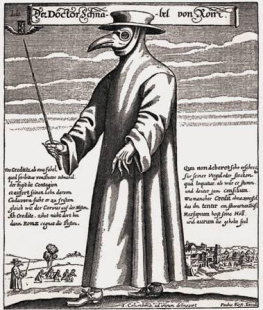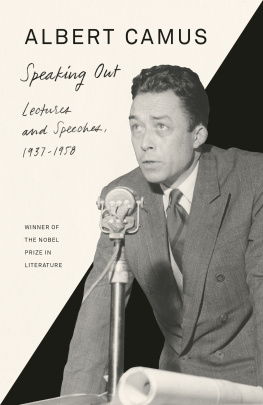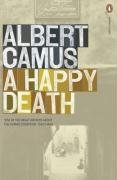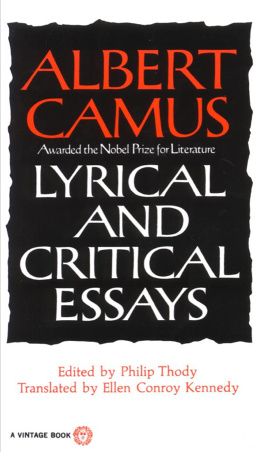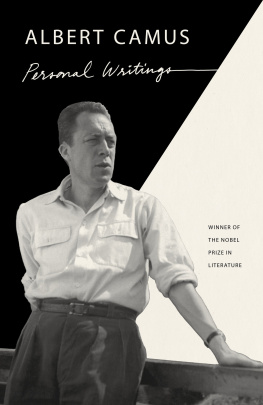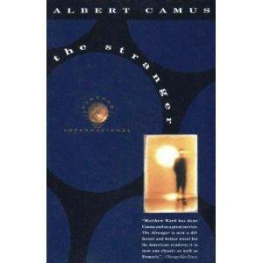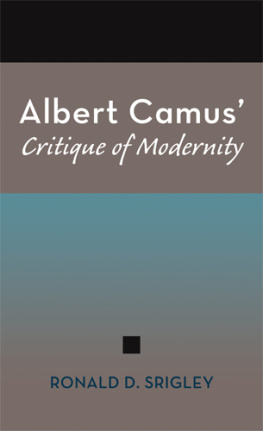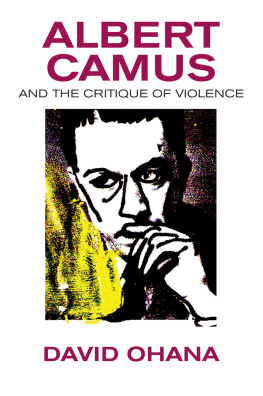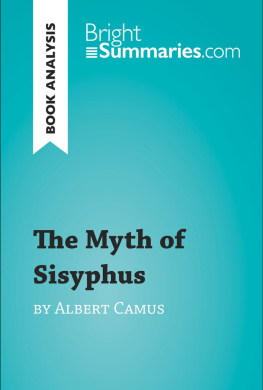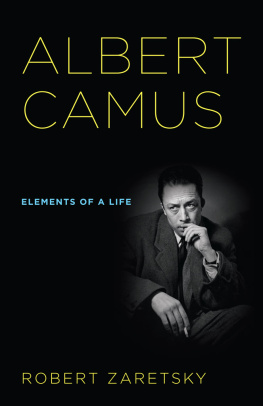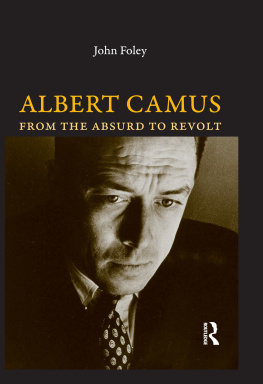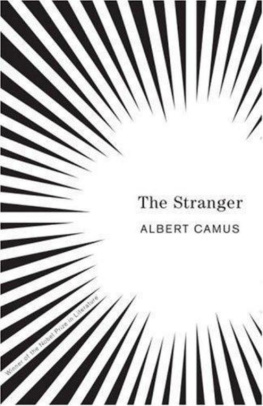Albert Camus - The Plague
Here you can read online Albert Camus - The Plague full text of the book (entire story) in english for free. Download pdf and epub, get meaning, cover and reviews about this ebook. genre: Detective and thriller. Description of the work, (preface) as well as reviews are available. Best literature library LitArk.com created for fans of good reading and offers a wide selection of genres:
Romance novel
Science fiction
Adventure
Detective
Science
History
Home and family
Prose
Art
Politics
Computer
Non-fiction
Religion
Business
Children
Humor
Choose a favorite category and find really read worthwhile books. Enjoy immersion in the world of imagination, feel the emotions of the characters or learn something new for yourself, make an fascinating discovery.
- Book:The Plague
- Author:
- Genre:
- Rating:5 / 5
- Favourites:Add to favourites
- Your mark:
- 100
- 1
- 2
- 3
- 4
- 5
The Plague: summary, description and annotation
We offer to read an annotation, description, summary or preface (depends on what the author of the book "The Plague" wrote himself). If you haven't found the necessary information about the book — write in the comments, we will try to find it.
The Plague — read online for free the complete book (whole text) full work
Below is the text of the book, divided by pages. System saving the place of the last page read, allows you to conveniently read the book "The Plague" online for free, without having to search again every time where you left off. Put a bookmark, and you can go to the page where you finished reading at any time.
Font size:
Interval:
Bookmark:
The Plague
By Albert Camus
Published By: eBookEden.com

Table of Contents
The Plague (Fr. La Peste) is a novel by Albert Camus, published in 1947, that tells the story of medical workers finding solidarity in their labour as the Algerian city of Oran is swept by a plague epidemic. It asks a number of questions relating to the nature of destiny and the human condition. The characters in the book, ranging from doctors to vacationers to fugitives, all help to show the effects the plague has on a populace.
The novel is believed to be based on the cholera epidemic that killed a large percentage of Orans population in 1849 following French colonization, but the novel is placed in the 1940s. Oran and its environs were struck by disease multiple times before Camus published this novel. According to a research report by the Centers for Disease Control and Prevention, Oran was decimated by the plague in 1556 and 1678, but outbreaks after European colonization, in 1921 (185 cases), 1931 (76 cases), and 1944 (95 cases), were very far from the scale of the epidemic described in the novel.
The Plague is considered an existentialist classic despite Camus objection to the label. The narrative tone is similar to Kafkas, especially in The Trial, where individual sentences potentially have multiple meanings, the material often pointedly resonating as stark allegory of phenomenal consciousness and the human condition. Camus included a dim-witted character misreading The Trial as a mystery novel as an oblique homage. The novel has been read as a metaphorical treatment of the French resistance to Nazi occupation during World War II.
Although Camuss approach in the book is severe, his narrator emphasizes the ideas that we ultimately have no control, irrationality of life is inevitable, and he further illustrates the human reaction towards the absurd. The Plague represents how the world deals with the philosophical notion of the Absurd, a theory which Camus himself helped to define.
The text of The Plague is divided into five parts.
In the town of Oran, thousands of rats, initially going unnoticed by the populace, began to die in the streets. A hysteria develops soon after, causing the local newspapers to report the incident. Authorities responding to public pressure order the collection and cremation of the rats, unaware that the collection itself was the catalyst for the spread of the bubonic plague.
The main character, Dr. Bernard Rieux, lives comfortably in an apartment building when strangely the buildings concierge, M. Michel, a confidante, dies from a fever. Dr. Rieux consults his colleague, Castel, about the illness until they come to the conclusion that a plague is sweeping the town. They both approach fellow doctors and town authorities about their theory, but are eventually dismissed on the basis of one death. However, as more and more deaths quickly ensue, it becomes apparent that there is an epidemic.
Authorities are slow to accept that the situation is serious and quibble over the appropriate action to take. Official notices enacting control measures are posted, but the language used is optimistic and downplays the seriousness of the situation. A special ward is opened at the hospital, but its 80 beds are filled within three days. As the death toll begins to rise, more desperate measures are taken. Homes are quarantined, corpses and burials are strictly supervised. A supply of plague serum finally arrives, but there is only enough to treat existing cases and the countrys emergency reserves are depleted. When the daily number of deaths jumps to 30, the town is sealed and an outbreak of plague is officially declared.
The town is sealed off. The town gates are shut, rail travel is prohibited, and all mail service is suspended. The use of telephone lines is restricted only to urgent calls, leaving short telegrams as the only means of communicating with friends or family outside the town. The separation affects daily activity and depresses the spirit of the townspeople, who begin to feel isolated and introverted, and the plague begins to affect various characters.
One character, Raymond Rambert, devises a plan to escape the city to join his lover in Paris after city officials refused his request to leave. He befriends some criminals so that they may smuggle him out of the city. Another character, Father Paneloux, uses the plague as an opportunity to advance his stature in the town by suggesting that the plague was an act of God for the citizens sinful nature. His diatribe falls on the ears of many citizens of the town, who turned to religion in droves and who would not have done so under normal circumstances. Cottard, a criminal remorseful enough to attempt suicide yet fearful of being arrested, becomes wealthy as a major smuggler. Meanwhile, Dr. Rieux, a vacationer Jean Tarrou, and a civil servant Joseph Grand exhaustively treat patients in their homes and in the hospital.
Rambert informs Tarrou of his escape plan, but when Tarrou tells him that others in the city, including Dr. Rieux, also have loved ones outside the city that they are not allowed to see, Rambert becomes sympathetic and changes his mind. He then decides to join Tarrou and Dr. Rieux to help fight the epidemic.
At the peak of the plagues destruction, the townspeople eventually give up on their personal concerns and band together to help each other. When a child dies from the plague, Dr. Rieux criticizes Father Panelouxs first sermon about Gods vengeance for sinful behaviour, citing the innocence of children. This inspires Father Paneloux to deliver a second sermon, however not to directly address the innocence, but to suggest that death was, in Panelouxs opinion, an expression of Gods will. Therefore, the childs death is a test for Christians who have to choose between following God wholly or not at all. Paneloux also implies that all those who died from the plague were sinful. Eventually Paneloux too is stricken with illness.
When the plague ends, the townspeople return to their daily routine becoming self-absorbed and ignorant again. Rambert reunites with his wife; Cottard, not being able to make a living outside of the plague, is captured by the police; Tarrou dies just before the plague ends. Dr. Rieux learns that his wife died from illness though she was outside the city. In the final scene he stands watching the fireworks of celebration, leaving a reminder that the plague is not dead, merely subdued.
Font size:
Interval:
Bookmark:
Similar books «The Plague»
Look at similar books to The Plague. We have selected literature similar in name and meaning in the hope of providing readers with more options to find new, interesting, not yet read works.
Discussion, reviews of the book The Plague and just readers' own opinions. Leave your comments, write what you think about the work, its meaning or the main characters. Specify what exactly you liked and what you didn't like, and why you think so.

